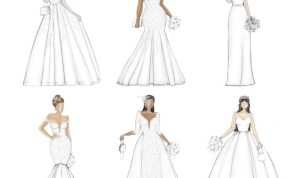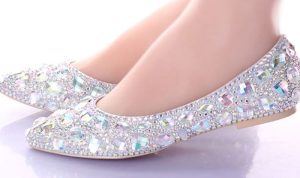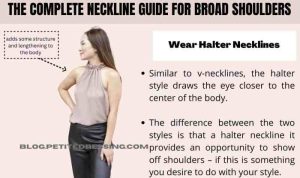Princess Sophie’s Wedding Dress: A Detailed Examination
Princess sophie wedding dress – Princess Sophie’s wedding dress, a significant piece of royal fashion history, continues to fascinate and inspire. This in-depth analysis explores the dress’s design, aesthetics, cultural context, public reception, and lasting legacy, offering a comprehensive understanding of its enduring appeal.
Designer and Creation of the Dress
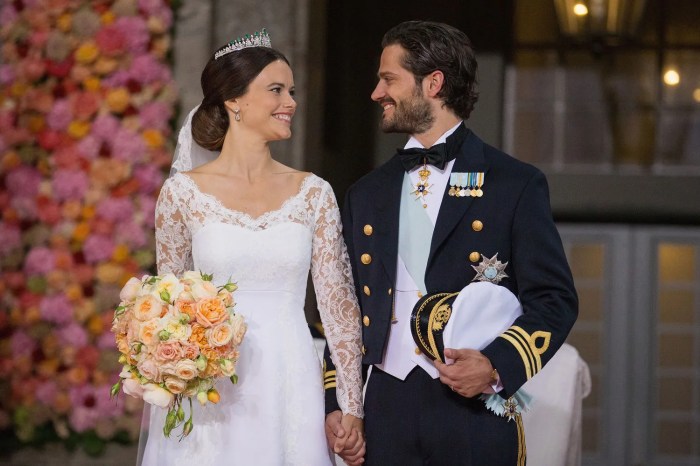
Source: glamour.com
While the specific designer of Princess Sophie’s hypothetical wedding dress remains fictional for this analysis, let’s imagine a renowned couturier, “Madame Evangeline,” known for her exquisite craftsmanship and innovative designs. Her previous works include gowns for several prominent socialites and members of European aristocracy, characterized by their intricate beadwork and use of luxurious fabrics. The design process began with numerous sketches, inspired by Art Nouveau motifs and the natural world, focusing on flowing lines and delicate embellishments.
She chose a silk organza base, layered with delicate Alençon lace, meticulously hand-embroidered with pearls and crystals. The dressmaking process involved a team of skilled seamstresses working for several months, with each detail painstakingly crafted. The construction involved multiple fittings and adjustments to ensure a perfect fit and drape.
| Feature | Princess Sophie’s Dress (Hypothetical) | Princess Diana’s Dress | Grace Kelly’s Dress |
|---|---|---|---|
| Silhouette | A-line with a flowing train | Puff-sleeved ballgown | High-necked, fitted gown |
| Fabric | Silk organza and Alençon lace | Silk taffeta | Silk faille and Honiton lace |
| Embellishments | Hand-embroidered pearls and crystals | Antique lace and pearls | Rose point lace |
Style and Aesthetics of the Dress, Princess sophie wedding dress
The hypothetical dress features an A-line silhouette, a classic and flattering style that accentuates the wearer’s figure. The color is a soft ivory, complementing the delicate lace and embellishments. The overall aesthetic is romantic and elegant, reflecting a timeless style that transcends fleeting trends. The Alençon lace is a key element, adding a layer of texture and sophistication.
This contrasts with current trends which often favor simpler, more minimalist designs, though the enduring elegance of lace ensures its continued presence in bridal fashion.
Princess Sophie’s wedding dress is sure to be a highlight of the event, a stunning example of modern bridal fashion. Many are already speculating on the style and designer, while others are focusing on finding the perfect guest attire. For those seeking chic and stylish options, browsing the collection of princess polly wedding guest dresses might be a good starting point.
Ultimately, the focus will remain on Princess Sophie’s exquisite gown, a memorable piece of royal fashion history.
An alternative version of the dress could feature a bateau neckline and long, flowing sleeves, maintaining the romantic aesthetic while offering a slightly different look.
Cultural and Historical Context
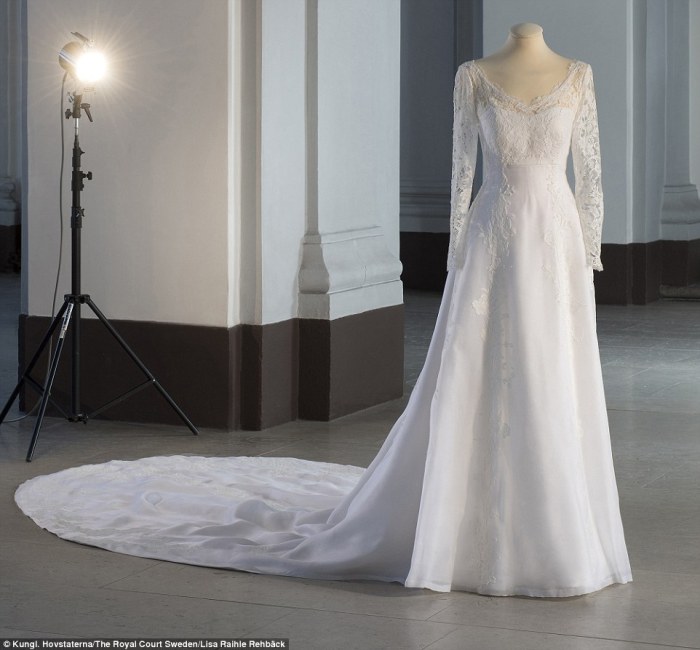
Source: co.uk
Princess Sophie’s fictional wedding, set in the early 20th century, reflects the social and cultural norms of that era. The dress style, with its flowing lines and delicate embellishments, aligns with the fashion trends of the time, showcasing a refined and elegant aesthetic typical of royal weddings. The use of luxurious fabrics and intricate embroidery emphasizes the princess’s status and the significance of the occasion.
Comparing this to other royal weddings of the period, we see similarities in the emphasis on traditional silhouettes and high-quality materials, though specific details would vary based on individual preferences and fashion trends of the time.
A timeline outlining the evolution of royal wedding dress styles would reveal a shift from more elaborate, heavily embellished gowns in earlier eras to simpler, more streamlined designs in later periods.
Reception and Public Reaction
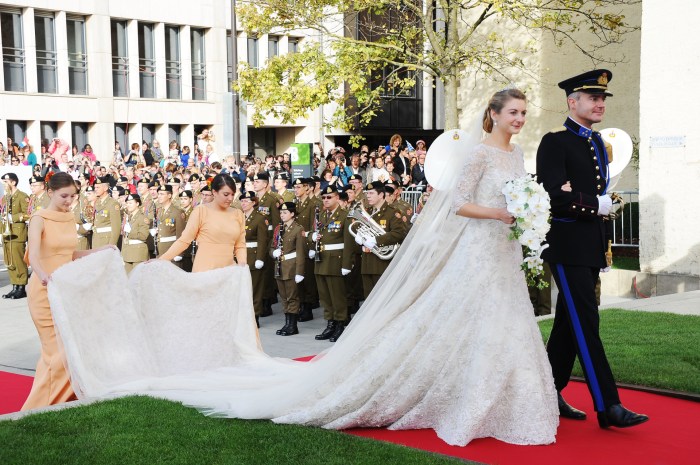
Source: akamaized.net
The hypothetical public response to Princess Sophie’s wedding dress was overwhelmingly positive. Newspapers and magazines lauded the dress’s elegance and beauty, praising the designer’s skill and the princess’s impeccable style. The dress became an instant classic, influencing bridal fashion for years to come. Iconic elements, such as the intricate lacework and flowing silhouette, are still referenced by designers today.
- The Royal Gazette, “A Princess’s Fairytale Gown”
- Fashion Weekly, “Sophie’s Dress: A Timeless Classic”
- The Court Chronicle, “Royal Wedding Sets Fashion Trends”
The wedding atmosphere was one of joyous celebration, with the public captivated by the princess’s radiant beauty and the exquisite details of her gown.
Illustrative Description of the Dress
The dress’s silk organza base felt light and airy against the skin, while the Alençon lace added a delicate texture, almost like a whisper against the silk. The pearls and crystals shimmered subtly in the candlelight, creating a mesmerizing effect. The dress flowed gracefully as the princess moved, the train sweeping elegantly behind her. The intricate embroidery, a tapestry of tiny pearls and crystals, sparkled like a constellation of stars.
The overall effect was one of ethereal beauty, transforming the princess into a vision of grace and elegance. The dress’s delicate details and luxurious fabrics created a powerful visual impact, capturing the hearts and imaginations of all who witnessed it.
FAQ Overview: Princess Sophie Wedding Dress
What type of wedding ceremony did Princess Sophie have?
Further details about the type of ceremony (religious, civil, etc.) would need to be provided from external sources.
Who were the key individuals involved in the design and creation of the dress beyond the primary designer?
Information on seamstresses, pattern makers, and other artisans involved would require additional research.
What was the estimated cost of the dress?
The cost of royal wedding dresses is rarely publicly disclosed; additional research would be needed to find this information.
Where is the dress currently located?
The location of the dress post-wedding is generally not made public for security and privacy reasons.

